第163章 CHAPTER IX.(15)
Manuel, the ex-procureur of the Commune; Latour-du-Pin, minister of war in 1789; the venerable Bailly, who, it was said, had been, with La Fayette, an accomplice in the journey to Varennes; lastly, Valaze one of the Girondists destined to the scaffold, were taken from their prisons and compelled to give evidence.
No precise fact was elicited. Some had seen the Queen in high spirits when the Life Guards testified their attachment; others had seen her vexed and dejected while being conducted to Paris, or brought back from Varennes; these had been present at splendid festivities which must have cost enormous sums; those had heard it said in the ministerial offices that the Queen was adverse to the sanction of the decrees. An ancient waiting-woman of the Queen had heard the Duc de Coigny say, in 1788, that the Emperor had already received two hundred millions from France to make war upon the Turks.
The cynical Hebert, being brought before the unfortunate Queen, dared at length to prefer the charges wrung from the young Prince. He said that Charles Capet had given Simon an account of the journey to Varennes, and mentioned La Fayette and Bailly as having cooperated in it. He then added that this boy was addicted to odious and very premature vices for his age; that he had been surprised by Simon, who, on questioning him, learned that he derived from his mother the vices in which he indulged.
Hebert said that it was no doubt the intention of Marie Antoinette, by weakening thus, early the physical constitution of her son, to secure to herself the means of ruling him in case he should ever ascend the throne.
The rumours which had been whispered for twenty years by a malicious Court had given the people a most unfavourable opinion of the morals of the Queen. That audience, however, though wholly Jacobin, was disgusted at the accusations of Hebert.
[Can there be a more infernal invention than that made against the.
Queen by Hdbert,-namely, that she had had an improper intimacy with her own son? He made use of this sublime idea of which he boasted in order to prejudice the women against the Queen, and to prevent her execution from exciting pity. It had, however, no other effect than that of disgusting all parties.--PRUDHOMME.]
He nevertheless persisted in supporting them.
[Hebert did not long survive her in whose sufferings he had taken such an infamous part. He was executed on 26th March, 1794.]
The unhappy mother made no reply. Urged a new to explain herself, she said, with extraordinary emotion, "I thought that human nature would excuse me from answering such an imputation, but I appeal from it to the heart of every mother here present." This noble and simple reply affected all who heard it.
In the depositions of the witnesses, however, all was not so bitter for Marie Antoinette. The brave D'Estaing, whose enemy she had been, would not say anything to inculpate her, and spoke only of the courage which she had shown on the 5th and 6th of October, and of the noble resolution which she had expressed, to die beside her husband rather than fly.
Manuel, in spite of his enmity to the Court during the time of the Legislative Assembly, declared that he could not say anything against the accused. When the venerable Bailly was brought forward, who formerly so often predicted to the Court the calamities which its imprudence must produce, he appeared painfully affected; and when he was asked if he knew the wife of Capet, "Yes," said he, bowing respectfully, "I have known Madame." He declared that he knew nothing, and maintained that the declarations extorted from the young Prince relative to the journey to Varennes were false. In recompense for his deposition he was assailed with outrageous reproaches, from which he might judge what fate would soon be awarded to himself.
In all the evidence there appeared but two serious facts, attested by Latour-du-Pin and Valaze, who deposed to them because they could not help it. Latour-du-Pin declared that Marie Antoinette had applied to him for an accurate statement of the armies while he was minister of war.
Valaze, always cold, but respectful towards misfortune, would not say anything to criminate the accused; yet he could not help declaring that, as a member of the commission of twenty-four, being charged with his colleagues to examine the papers found at the house of Septeuil, treasurer of the civil list, he had seen bonds for various sums signed Antoinette, which was very natural; but he added that he had also seen a letter in which the minister requested the King to transmit to the Queen the copy of the plan of campaign which he had in his hands. The most unfavourable construction was immediately put upon these two facts, the application for a statement of the armies, and the communication of the plan of campaign; and it was concluded that they could not be wanted for any other purpose than to be sent to the enemy, for it was not supposed that a young princess should turn her attention, merely for her own satisfaction, to matters of administration and military, plans. After these depositions, several others were received respecting the expenses of the Court, the influence of the Queen in public affairs, the scene of the 10th of August, and what had passed in the Temple; and the most vague rumours and most trivial circumstances were eagerly caught at as proofs.
Marie Antoinette frequently repeated, with presence of mind and firmness, that there was no precise fact against her;